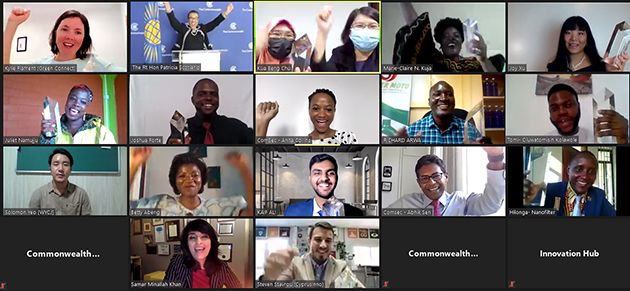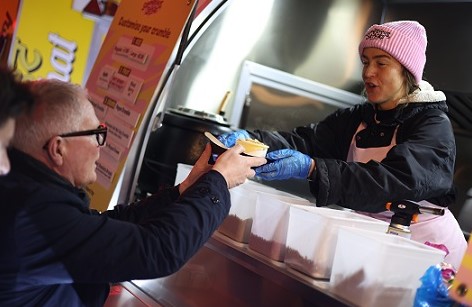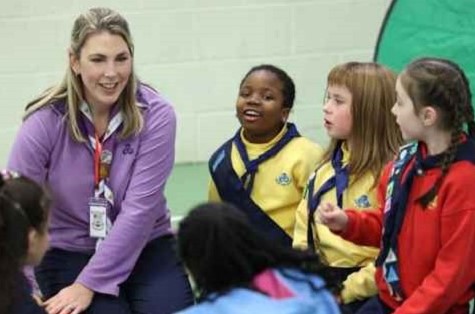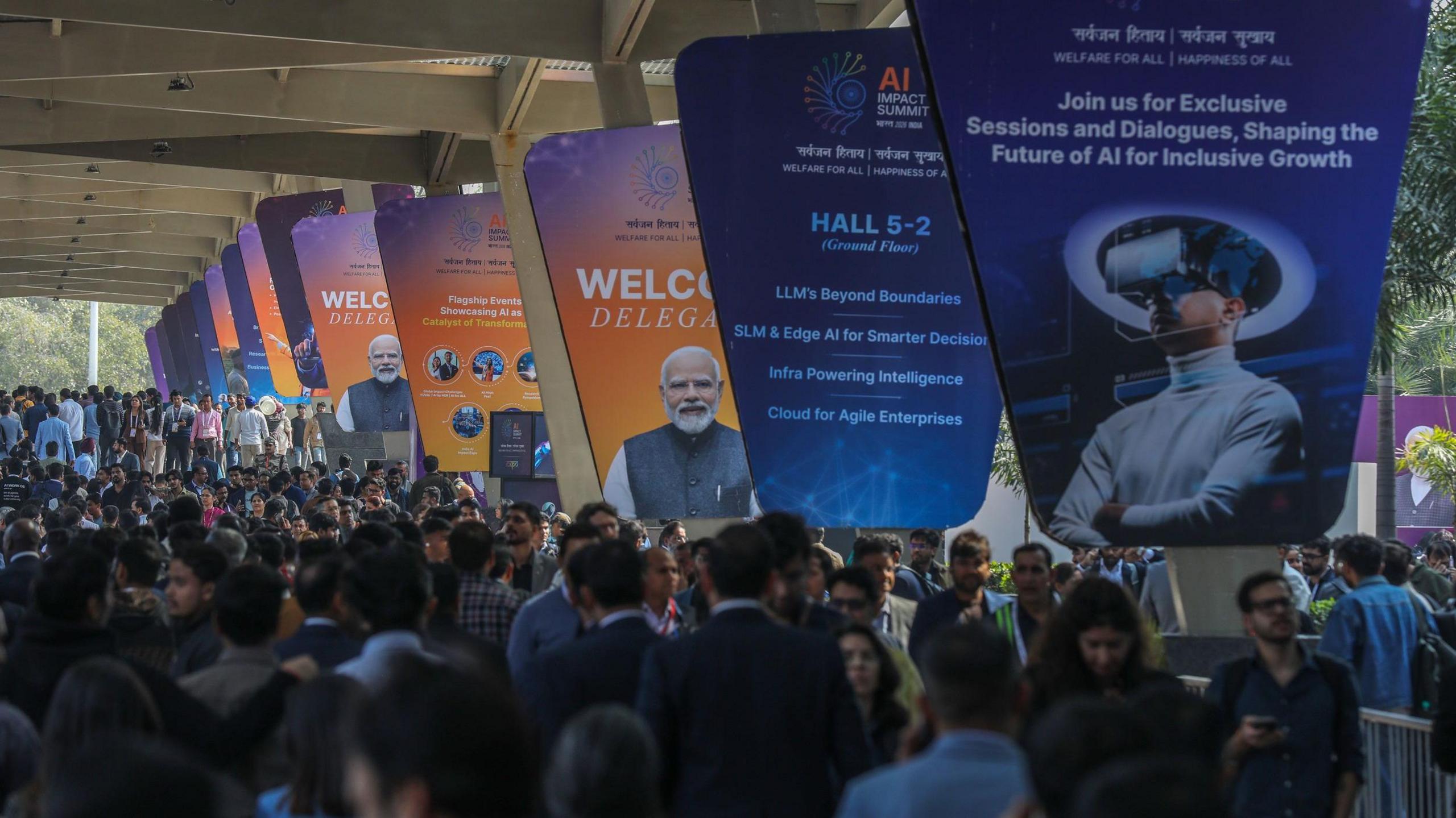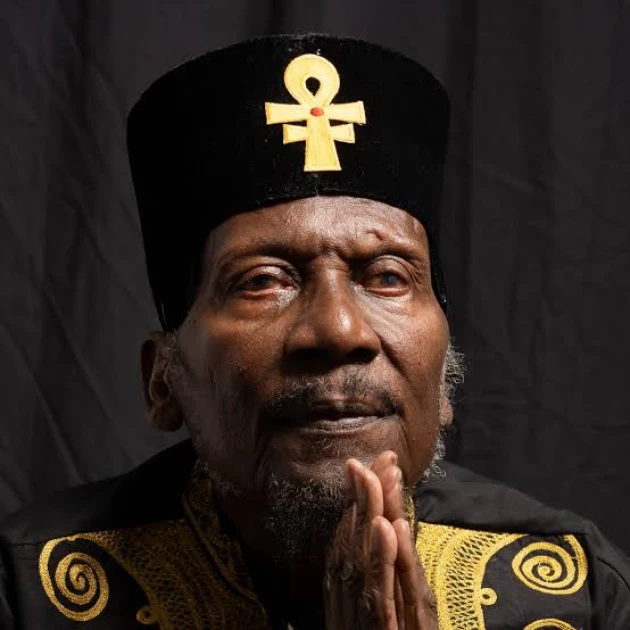Fifteen individuals and groups have been recognised for making a significant impact on communities, countries and regions of the Commonwealth, by creating innovative solutions to pressing development challenges.
This year’s winners of the Commonwealth Secretary-General’s Innovation for Sustainable Development Awards each received a trophy, £3,000 in prize money and the opportunity to scale up their innovations in collaboration with partners and mentors across the Commonwealth.
Winners range from an inventor in India who creates low-cost portable housing for COVID-19 quarantine and shelter from extreme weather, to a Cameroonian manufacturer of 100% biodegradable sanitary pads made of banana fibre, and a coalition of young Pacific Islanders pushing for reforms in international law to address climate injustices.
Commonwealth Secretary-General Patricia Scotland applauded the diverse line-up of change-makers during a virtual meeting yesterday in the run up to the UN Climate Change Conference COP26. She said: “Over many decades, the people of the Commonwealth member nations, through the Commonwealth networks which connect us and encourage us to work together, have found pioneering ways of overcoming daunting challenges and of solving seemingly intractable problems.
“My intention of instituting the Innovation for Sustainable Development Awards in 2019 was to accord recognition to such achievements, wherever and however in the Commonwealth they are being achieved – and particularly among that 60% of the 2.5 billion people in our member nations who are under the age of 30. I hope the added exposure the awards bring will help you to attract the support you deserve from governments, investors, mentors and partners to scale up your work and achieve even more impact.”
One of the winners is Marie-Claire N. Kuja, who founded KujaEcoPads to fight period poverty and help improve the lives of women and girls in Cameroon. She said: “This award will boost the morale of my employees and improve motivation. It will increase our visibility and help to boost the company profile. It will open pathways for partnerships at a global level and bring new connections and networking opportunities.”
Kylie Flament, general manager of Green Connect, a not-for-profit social enterprise in Australia that employs young people and former refugees to do environmental work, added: “We hope that people are inspired by this project and that it will be replicated in other parts of the world, because it shows that it is possible to bring about social change and environmental regeneration while running a business. This is social enterprise - it’s the best of business and charity brought together to solve the biggest issues our communities face.”
Winning innovations fell into five thematic categories reflecting the pillars of the Sustainable Development Goals. Selected by an independent jury, the full list includes:
PEOPLE
• Prof. Askwar Hilonga, Nanofilter (Tanzania): low-cost and sustainable water purification system particularly suited to the needs of local people.
• Kaif Ali, SpaceEra (India): Low-cost portable housing units that can be utilised for COVID-19 quarantine and can also be used as a shelter home in flood and earthquake-prone regions.
• Marie-Claire N. Kuja, KujaEcoPads (Cameroon): 100% biodegradable and compostable sanitary pads made from absorbent banana fibre available at affordable prices.
PLANET
• Red Diamond Compost Inc (Barbados): A soil treatment solution to improve organic solid waste management, food and nutrition security, and support climate adaptation and mitigation.
• Kua Beng Chu and Nur Ashikin Arbi, Department of Fisheries (Malaysia): A device that traps and removes marine leeches from fish while removing the need for chemicals or antibiotics, thus improving water quality and marine life.
• Richard Ochieng Arwa, Cist Ethanol Fuel (Kenya): An innovation that converts invasive water hyacinths from Lake Victoria into biofuel for cooking and hand sanitisers.
PROSPERITY
• Aggie Global Pty Ltd (Fiji): An online marketplace that creates a sustainable food supply chain and helps smallholder farmers in Fiji to access new markets and earn a decent income.
• Juliet Namujju, Kimuli Fashionability (Uganda): A social enterprise that empowers disabled people by imparting creative skills training and ‘up-cycles’ waste materials and blending them with African fabrics.
• Oluwatomisin Kolawole, Vinsighte (Nigeria): An artificial intelligence-powered reading application which allows the visually impaired to read printed books and educational materials independently and conveniently.
PEACE
• Samar Minallah Khan, Ethnomedia (Pakistan): Billboard on wheels with messages and images drawn from local culture and traditions that are helping change mindsets and promote the empowerment of girls and women in remote parts of Pakistan.
• Cyprus Inno (Cyprus): A digital platform that connects young people and entrepreneurs from across the political divide in Cyprus and promotes peacebuilding with the help of innovation.
• Pacific Islands Chapter, World's Youth for Climate Justice (Solomon Islands): A coalition of young people from many countries pushing for reform in international law to address the inter-generational injustices caused by climate change.
PARTNERSHIPS
• Joy Xu, STREAM Syndicate (Canada): A government-funded students-led charity that advocates for the access to STEM and humanities education for marginalised young people and develops innovative digital platforms and apps to promote the psychological well-being of students.
• Green Connect (Australia): An urban permaculture farm employing young people and former refugees to deliver a weekly box of fresh, seasonal fruit, vegetables and herbs to local communities.
• Teach2030, Commonwealth Education Trust (United Kingdom): An online professional development programme with a focus on upskilling teachers in developing Commonwealth countries.



